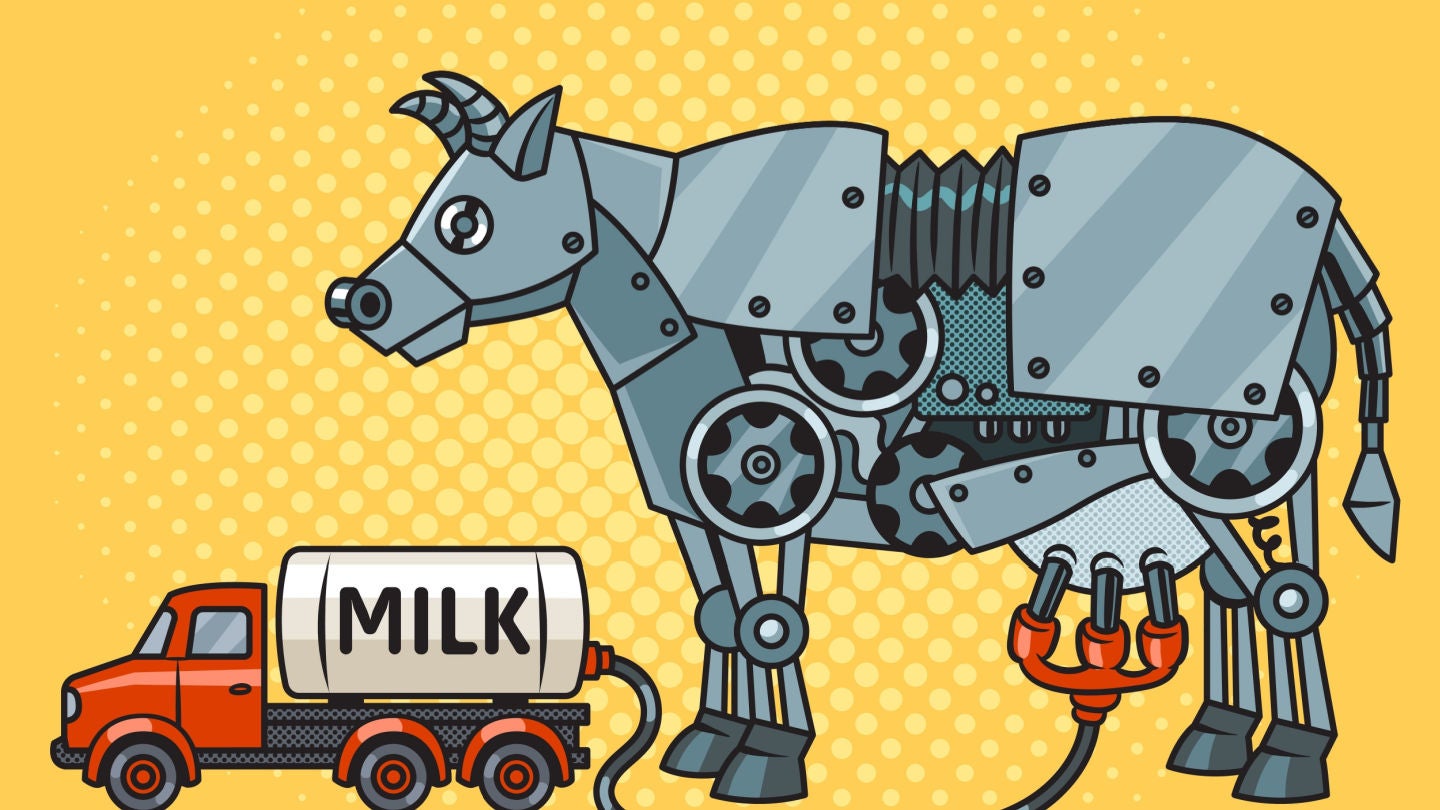
Cows, potatoes and tomatoes could be the next tech and telcos battleground in Australia.
Leading telcos in the country Telstra and TPG have both made recent announcements around their efforts to develop converged technology offerings centred on agriculture use cases.
In March 2023 Telstra announced a partnership with Charles Sturt University (CSU) and Food Agility, an industry-focused research and development organization, to develop innovative agricultural technology solutions.
The collaboration aims to leverage Telstra’s network capabilities and IoT expertise as well as its “Telstra Data Hub” alongside CSU’s research and academic resources, and Food Agility’s industry connections to support the development of innovative use cases at CSU and Agility’s jointly operated “Global Digital Farm”. The farm, located in Wagga Wagga, NSW, is a commercial farm that incorporates technology labs, innovation centres and training facilities.
Telstra has history in agriculture
This is not the first foray Telstra has made into developing prototypes for the agriculture and livestock industry. In March, 2022 the company partnered with IBM to test a data sharing platform to track western rock lobsters as they move across the supply chain from boat to distribution. Telstra also ran a similar trial with Meat and Livestock Australia in Jul 2022.
Meanwhile, announced last October, TPG Telecom, has partnered with the University of Technology Sydney, Nokia and Amazon Web Services (AWS) to develop a cattle counting solution for the Tamworth Livestock exchange. The solutions leverage TPG 5G network to deliver multiple live video feeds of cattle as the move into the exchange, and uses AI-video analytics run on an edge server to count the cattle as they enter, eliminating human error and reducing the need for man hours in a typically laborious process.
How well do you really know your competitors?
Access the most comprehensive Company Profiles on the market, powered by GlobalData. Save hours of research. Gain competitive edge.

Thank you!
Your download email will arrive shortly
Not ready to buy yet? Download a free sample
We are confident about the unique quality of our Company Profiles. However, we want you to make the most beneficial decision for your business, so we offer a free sample that you can download by submitting the below form
By GlobalDataA growing demand
Telstra and TPG are hoping to capitalise on a critical industry for Australia, that is underpenetrated with technology. According to the Royal Bank of Australia, the Australian Agriculture industry contributed A$52 billion to GDP in the calendar year 2022, and has been growing at an average annual rate of 15% over the past three years.
There is also a growing demand for agriculture technology solutions. GlobalData’s Connected Enterprise Tracker shows that there are 365 deployments across the world since 2011 including 93 within the last three years. Between use cases, environmental monitoring, people and animal tracking, and condition monitoring lead the demand by accounting for 70% of the total deployments. However, both telcos will face the challenge of moving from trails and prototypes to repeatable business. Despite lengthy prototype periods, neither have announced any commercial solutions.
Telcos can benefit
However, both Telstra and TPG have the right ingredients in place. Telstra’s Datahub can address broader agricultural issues in regulatory compliance, traceability, environmental health, biosecurity, and more efficient food supply networks. Telstra also has wide IoT capabilities across multiple stacks including devices, networks, cybersecurity and platform, which can support and enhance the development of agriculture technology solutions. TPG’s machine vision, paired with private network and edge compute can enable a host of applications for regional farms that go beyond cattle counting to areas like farm security, aerial crop analytics, or grading and sorting.
The broader issue however is the unique challenges that come with each agribusiness use case, and each individual customer. While TPG and Telstra and their technology partners can provide horizontal expertise, the labour cost of developing and deploying field trials that suit the needs of individual agribusiness customer is too high. To be truly competitive commercial Telstra or TPG are in commercializing solutions for agriculture, they should consider developing more specific skills either through acquisition or joint-ventures. Telstra is already taking this approach to the mining sector with its purchase of Alliance Automation.
Meanwhile, TPG is also focusing on industry for its 5G, IoT and private networks business, and has mentioned sales teams dedicated to mining and energy. However, TPG could consider specialising in agriculture as it seeks to grow its private 5G business with Nokia. Compared to other industries like mining and energy, there fewer existing private wireless customers and it could be a greenfield for them to grow in.








Related Company Profiles
Amazon Web Services Inc
Nokia Corp
TPG Telecom Ltd